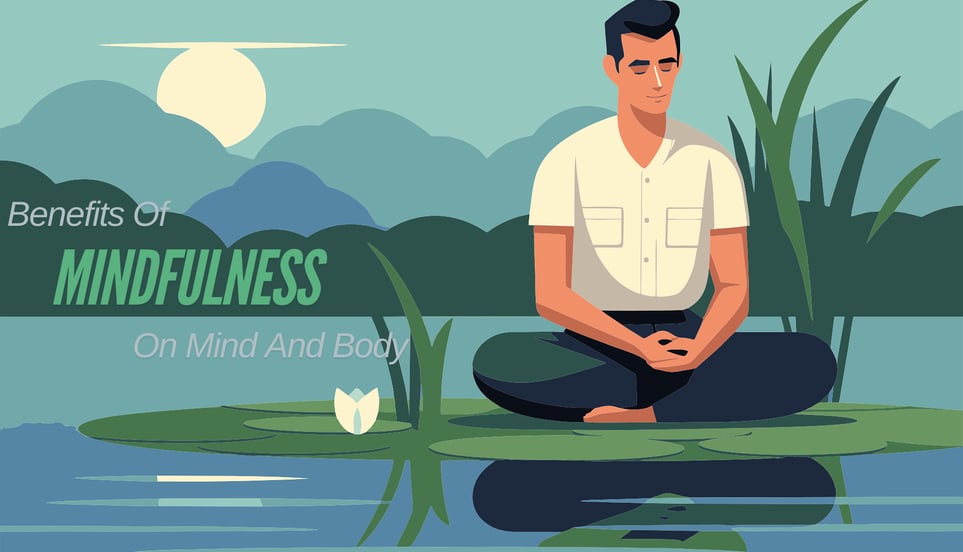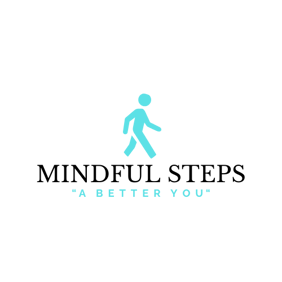Transform Your Mind and Body With Mindfulness
Unlock the power of mindfulness in daily life to reduce stress, boost focus, and enhance relationships. Start practicing today for a more balanced and peaceful life.
In a world that demands us to multitask, mindfulness serves as a gentle reminder to pause, breathe, and truly live in the moment. More than a trend, mindfulness is a way of life that helps us connect with ourselves and the world around us. Let’s dive into the many benefits of mindfulness and how it can transform our daily lives.
“Mindfulness isn’t difficult, we just need to remember to do it.” – Sharon Salzburg
Improved Mental Well-being
Mindfulness acts as a natural remedy for stress and anxiety. By focusing on the present, we reduce the weight of past regrets and future worries. Studies have shown that mindfulness practices can lower cortisol levels, the body’s stress hormone, resulting in a calmer state of mind.
It also fosters emotional balance. When practiced consistently, mindfulness helps us become less reactive and more responsive, especially in challenging situations. This leads to improved mental clarity and resilience.
Enhanced Physical Health
Mindfulness doesn’t just calm the mind; it heals the body. Regular mindfulness practice:
Improves Heart Health: Reduces blood pressure and decreases the risk of heart-related issues.
Boosts Immunity: A relaxed body can fight infections more effectively.
Enhances Sleep Quality: Mindfulness helps quiet an overactive mind, making it easier to fall and stay asleep.
Tip: Combine mindfulness with activities like yoga or deep breathing for maximum physical benefits.
Sharpened Focus and Productivity
“Wherever you are, be all there.” – Jim Elliot
Mindfulness trains the brain to focus on one thing at a time. In a distracted world, this ability to stay present boosts productivity. Mindful individuals are more efficient, creative, and less prone to errors.
Try these practices to stay focused:
Mindful Work Sprints: Focus on a task for 25 minutes, then take a 5-minute mindful break.
Single-tasking: Avoid multitasking; give each task your full attention.
Stronger Relationships
Mindfulness enhances how we interact with others. By being present in conversations, we truly listen and understand, fostering deeper connections. It also reduces impulsive reactions during conflicts, helping us respond with empathy and care.
Imagine this: Instead of reacting in anger during a disagreement, a mindful pause allows space for understanding and resolution. Over time, this practice can significantly strengthen bonds.
Practical Ways to Practice Mindfulness
Incorporating mindfulness into your routine doesn’t have to be complicated. Start small and build consistency.
1.Morning Gratitude Practice
Begin your day by listing three things you’re grateful for. This sets a positive tone for the rest of your day.
2.Mindful Breathing
Take a few minutes to focus on your breath. Inhale deeply, exhale slowly, and feel the rhythm of life flowing through you.
3.Mindful Eating
Savor your meals by noticing the flavors, textures, and aromas. Put away distractions like your phone or TV.
4.Mindful Walking
Whether in a park or on your way to work, walk slowly and notice the sights, sounds, and sensations around you.
5.Mindful Journaling
Write about your thoughts and emotions. Reflect on your day, highlighting moments of mindfulness and areas for growth.
The Science of Mindfulness
“Mindfulness changes the brain in ways that protect against stress-related disorders.” – Harvard Gazette
Research reveals that mindfulness strengthens the brain's prefrontal cortex, enhancing decision-making, focus, and emotional regulation. It also reduces activity in the amygdala, which is responsible for fear and stress responses. These changes promote a more peaceful and balanced state of being.
How to Get Started with Mindfulness
Starting mindfulness doesn’t require hours of meditation. Begin with small, consistent habits:
Use apps like Headspace, Calm, or Insight Timer for guided sessions.
Try short exercises like the “5-4-3-2-1 technique” (identify five things you see, four things you hear, etc.).
Read books like The Miracle of Mindfulness by Thich Nhat Hanh or 10% Happier by Dan Harris.
Conclusion: Mindfulness is a Journey, Not a Destination
Mindfulness transforms how we live, work, and love. It teaches us to find joy in the little things and approach life with calm and clarity. As Thich Nhat Hanh wisely said, “The present moment is the only time over which we have dominion.”
Start today. Pause, breathe, and take one mindful step forward. Your journey to a more peaceful, purposeful life begins now. Mindfulness can play a crucial role in helping you set and achieve meaningful personal goals. Learn how to craft goals that align with your values and aspirations in our guide on Setting Personal Goals .
FAQs
1. What is mindfulness, and how is it different from meditation?
Mindfulness is the practice of being fully present and aware of the moment, while meditation is a focused practice often used to cultivate mindfulness. In simple terms, mindfulness can be practiced anytime, anywhere, while meditation is typically done in a dedicated setting.
2. How long should I practice mindfulness each day?
You can start with as little as 5–10 minutes a day. Consistency is more important than duration. Over time, you can gradually increase your practice to 20–30 minutes for deeper benefits.
3. Can mindfulness help with anxiety or depression?
Yes, mindfulness is a proven tool for managing anxiety and depression. By focusing on the present, it helps reduce rumination and overthinking, which are common in these conditions. It also enhances emotional regulation and promotes a sense of calm.
4. Do I need to sit in silence to be mindful?
Not at all! While silent meditation is one way, mindfulness can be practiced during everyday activities like eating, walking, or even washing dishes. The key is to stay present and engaged in the moment.
5. What are the most common challenges in mindfulness practice?
The most common challenges include:
Restless Thoughts: It's normal to have a wandering mind. Gently bring your focus back to the present without judgment.
Consistency: Building a habit takes time. Start small and set reminders.
Expectations: Don’t expect instant results. Approach mindfulness as a journey rather than a quick fix.


